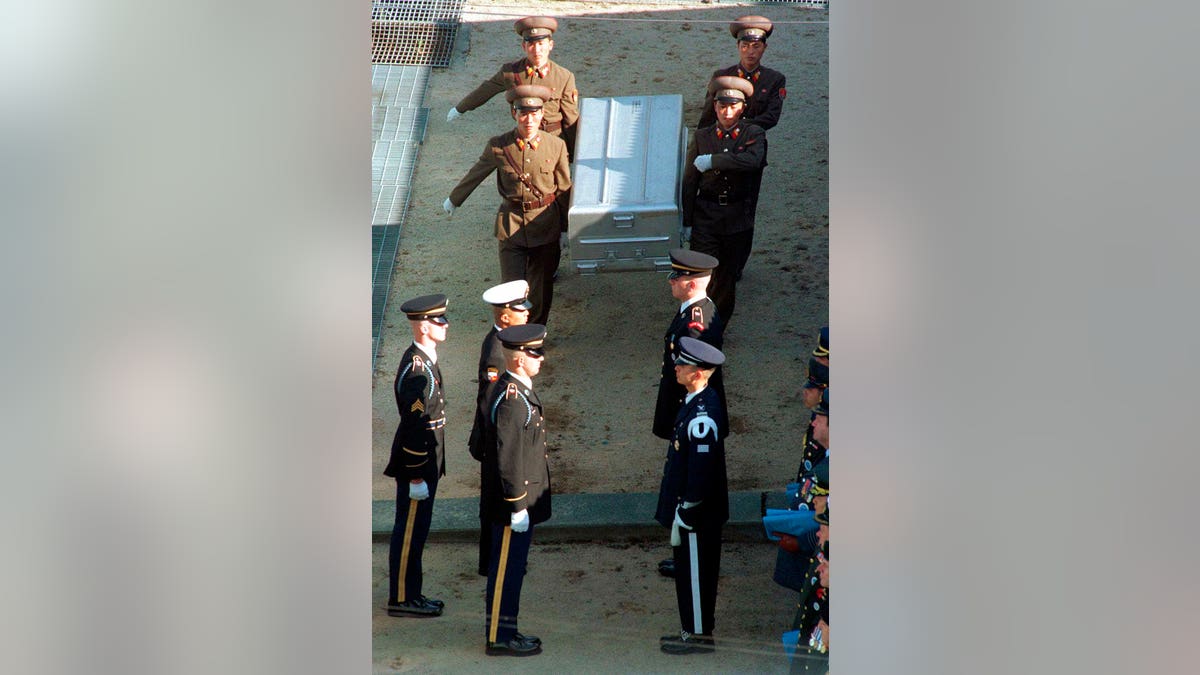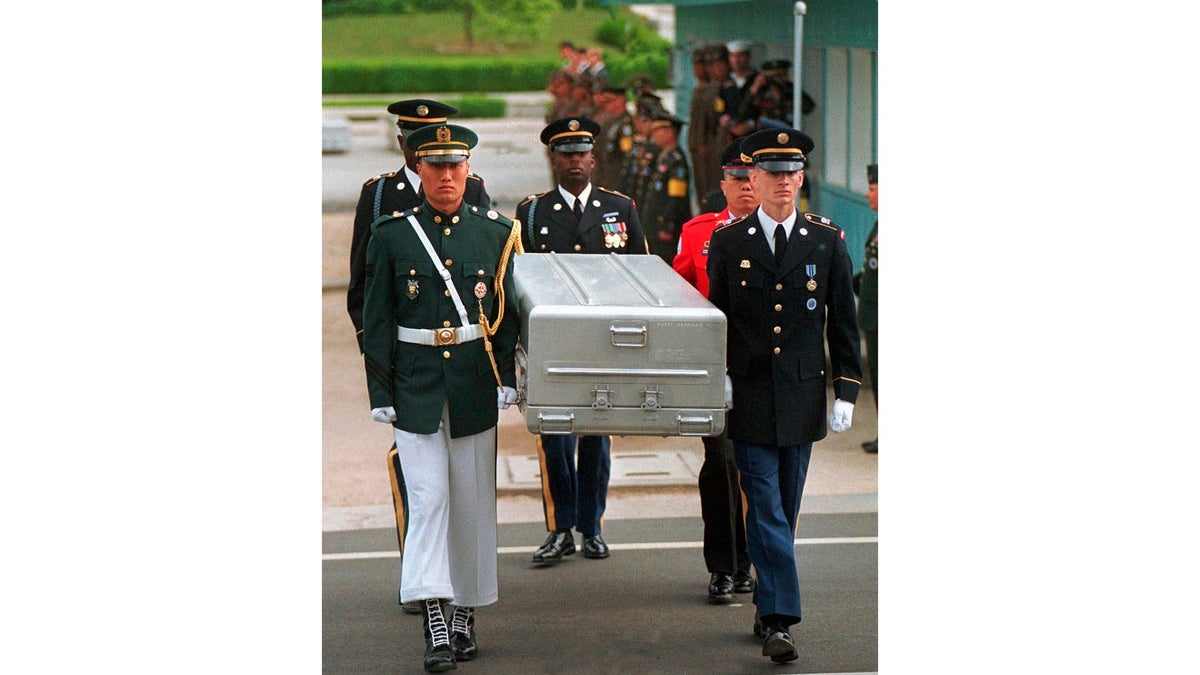
North Korean soldiers carry an aluminum casket containing remains of a U.S. serviceman killed during the Korean War toward U.N. Command soldiers, foreground, at the border village of Panmunjom, South Korea in 1998. (AP)
The U.S. military said it moved 100 caskets to the demilitarized zone between the two Koreas on Saturday, to prepare for North Korea’s returning of the remains of U.S. soldiers who have been missing since the 1950-53 Korean War.
U.S. Forces Korea spokesman Col. Chad Carroll also said 158 metal transfer cases were sent to a U.S. air base near Seoul, South Korea’s capital, and would be used to send the remains home.
The cases will remain in the border village of Panmunjom for a few days until being sent into North Korea so the North can begin the process of returning the remains of Americans who were killed or died during the 1950s conflict, South Korea's Yonhap News Agency reported.
2 MORE TRAINING EXERCISES WITH SOUTH KOREA SUSPENDED INDEFINITELY
According to the agency tasked with overseeing issues POW/MIA issues, North Korea has as many as 200 sets of remains ready to be returned.
The return of the remains was negotiated during President Trump's preparations for his June 12 summit in Singapore with North Korean leader Kim Jong Un.

In this May 14, 1999, file photo, U.N. honor guards carry a coffin containing the remains of the American soldiers after it was returned from North Korea at the border village of Panmunjom, South Korea. (AP)
Carrol denied a detail of the Yonhap report, which stated that U.S. military vehicles carrying more than 200 caskets were planning to cross into North Korea on Saturday.
Carroll said in an email that the U.S.-led U.N. Command was moving "assets" to a U.S. air base in Pyeongtaek, South Korea, south of Seoul, and to the Joint Security Area at the border to prepare for the process.
PUTIN TO MEET WITH SOUTH KOREA’S MOON AS WORLD CUP DIPLOMACY CONTINUES
No official return has been set and it’s not exactly clear when the repatriation will occur, Stars and Stripes reported.
U.S. Forces Korea said in a statement later in the day that 100 wooden “temporary transit cases” built in Seoul were sent to the Joint Security Area at the border as part of preparations to “receive and transport remains in a dignified manner when we get the call to do so.”
From 1996 to 2005, joint U.S.-North Korea military search teams conducted 33 recovery operations that collected 229 sets of American remains.
However, efforts to recover and return other remains have stalled for more than a decade because of the North’s nuclear weapons development and U.S. claims that the safety of recovery teams it sent during the administration of former President George W. Bush was not sufficiently guaranteed.
Trump has also promised to cease joint military exercises between U.S. troops and South Korea, which the North has long regarded as a provocation.
Fox News' Kathleen Joyce and the Associated Press contributed to this report.




















